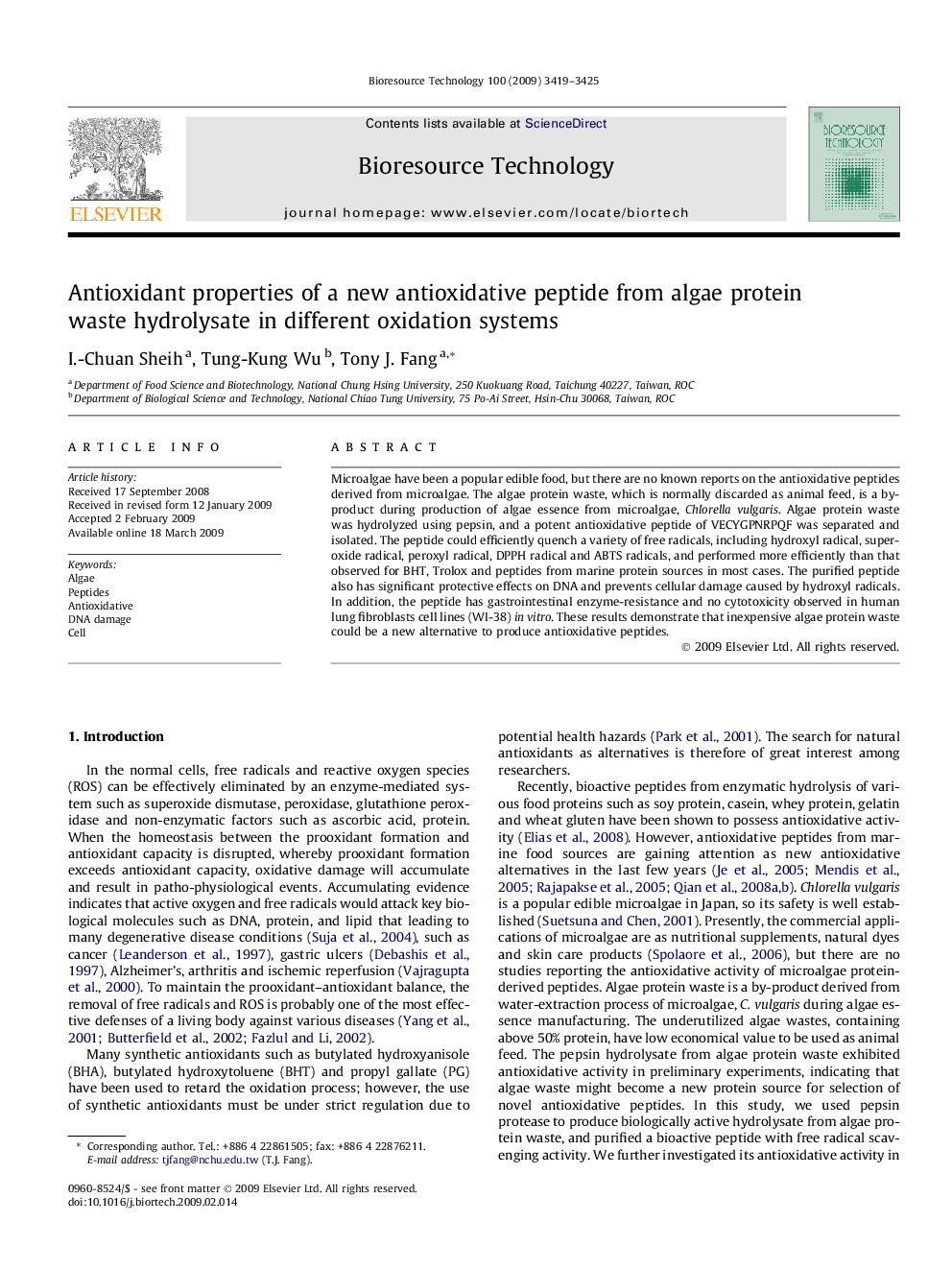| کد مقاله | کد نشریه | سال انتشار | مقاله انگلیسی | نسخه تمام متن |
|---|---|---|---|---|
| 684123 | 889015 | 2009 | 7 صفحه PDF | دانلود رایگان |

Microalgae have been a popular edible food, but there are no known reports on the antioxidative peptides derived from microalgae. The algae protein waste, which is normally discarded as animal feed, is a by-product during production of algae essence from microalgae, Chlorella vulgaris. Algae protein waste was hydrolyzed using pepsin, and a potent antioxidative peptide of VECYGPNRPQF was separated and isolated. The peptide could efficiently quench a variety of free radicals, including hydroxyl radical, superoxide radical, peroxyl radical, DPPH radical and ABTS radicals, and performed more efficiently than that observed for BHT, Trolox and peptides from marine protein sources in most cases. The purified peptide also has significant protective effects on DNA and prevents cellular damage caused by hydroxyl radicals. In addition, the peptide has gastrointestinal enzyme-resistance and no cytotoxicity observed in human lung fibroblasts cell lines (WI-38) in vitro. These results demonstrate that inexpensive algae protein waste could be a new alternative to produce antioxidative peptides.
Journal: Bioresource Technology - Volume 100, Issue 13, July 2009, Pages 3419–3425